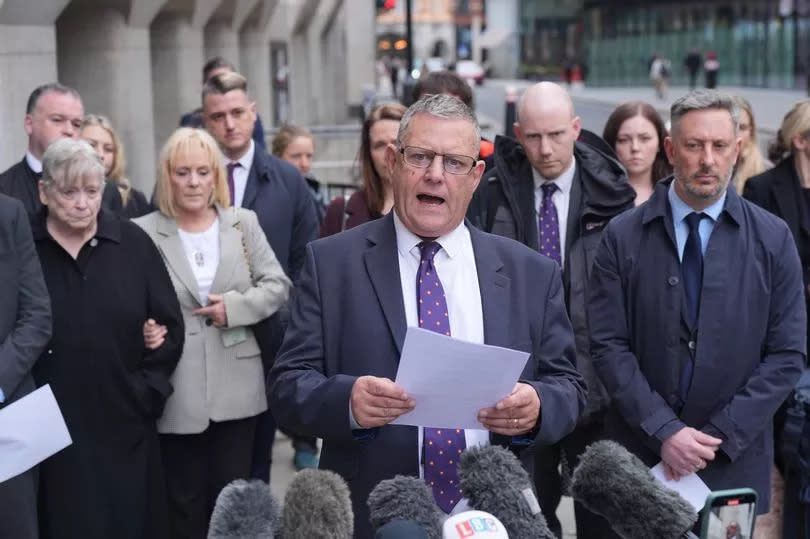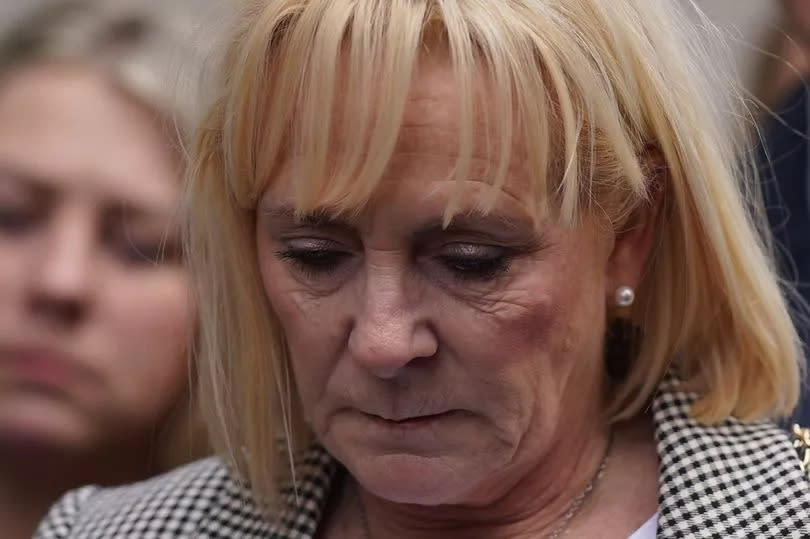Terror attack where Liverpool teacher was murdered in park was 'probably avoidable', inquest finds
A terror attack where three men, including a Liverpool-born teacher, were murdered in a park was "probably avoidable" and contributed to by the failings of multiple agencies.
Libyan refugee Khairi Saadallah shouted "Allahu Akhbar" as he fatally stabbed friends James Furlong, 36, Dr David Wails, 49, and Joseph Ritchie-Bennett, 39, on June 20 2020 in Reading's Forbury Gardens. Three other people – Stephen Young, Patrick Edwards and Nishit Nisudan – were also injured before Saadallah threw away the eight-inch (20cm) knife and ran off, being chased by an off-duty police officer.
Since arriving in Britain in 2012, Saadallah has been convicted of various offences including theft and assault. Judge Coroner Sir Adrian Fulford said the deaths "probably would have been avoidable" if the mental health service had given "greater priority to stabilising KS and securing access to long-term psychological therapy".
READ MORE: Woman named as two held on suspicion of murder
READ MORE: Dad who couldn't pay for taxi told driver 'I've got a knife'
He added that if his "extremist risk had been better analysed", Saadallah would probably then have been recalled to custody the day before the attacks, meaning they would never have happened. Judge Coroner Fulford said the deaths of the three men were "contributed to by the failings of multiple agencies".
Following the conclusion of the inquest yesterday, Friday, April 26, Gary Furlong, the dad of James, who was previously a teacher at King David High School in Wavertree, said the three victims had been failed by "virtually all state agencies" who had dealt with the attacker.
He said: "Our boys did not stand a chance." Mr Furlong said he has "very little confidence" that an attack like this will not happen again. He added: The problem is not the system. The problem is the people operating the system. And that starts at the bottom and goes right through. What we’ve seen is the lack of supervision, right throughout the process.
"There were clear warnings of (Saadallah’s) extremist risk and becoming a ‘lone-wolf’ attacker. We have been sat in court demoralised, bewildered and disillusioned by the agencies’ failure to effectively communicate, assess the risk and protect the public. It is clear to us that the boys were failed by the agencies who were entrusted to protect them.
"We cannot carry on listening to agencies saying, ‘lessons will be learnt’. What we now need to hear is 'What actions will be taken' by the government and agencies involved? We must try and find a way to live our lives without James. The pain of his loss, under such horrific circumstances, is with his family, friends, former colleagues and students, forever."
James Furlong, who worked at King David High School for four years, was head of history, government and politics at The Holt School in Wokingham at the time of his death. A victim impact statement from his family, read to the Old Bailey in 2021 when Saadallah was given a whole-life sentence for the murders, said: "James was a remarkable person, an unfailingly kind and compassionate man.
"He was a gentle, deeply caring soul and a great support to those he knew. James lived a happy and full life and we were a very close family. James was gay. He first came out as gay to his mother and then later to the rest of his family. He was worried that it might change things, but it only made us all closer.
"As a parent, to have a child is the greatest gift. To lose a child is unbearable, but to lose a child in such a cruel and violent way is excruciating. We have not slept a full night's sleep since it happened. There is a massive gap where James should be that makes our hearts ache."

At the inquest the judge coroner named several failures of Berkshire Healthcare NHS Foundation Trust Community Mental Health Team, one example resulted in Saadallah being caught in a "catch-22 dilemma" – as a result of his borderline personality disorder and/or PTSD, he abused alcohol or drugs which rendered him permanently ineligible for treatment.
Thames Valley Police failed to find a knife at Saadallah’s home during a welfare check the day before he carried out the attacks because officers were not told he was threatening to harm himself and others, the hearing was told. But the judge's coroner said he accepts that based on the information available to the officers before the visit, they had "no reasonable ground to arrest KS or consider detaining him".
The inquest at the Old Bailey heard the terrorist was "in limbo" for several years as his asylum application in the UK was refused, and he was also ineligible for deportation to Libya because of the country’s civil war. Saadallah arrived lawfully in the UK in April 2012 on a visitor’s visa, which expired in September of the same year.
The judge coroner said that the director of the Foreign National Offenders Returns Command at the Home Office "accepted that it was a failure by the Home Office that there was no system then in place to highlight this fact”.
Before his release from HMP Bullingdon, Saadallah said he would "stab someone" during an "outburst", which did not form part of an intelligence report until after the terror attack, the judge coroner said.
Saadallah was referred to Prevent four times, referrals which were all closed, because he was sent to prison and was no longer in the community and "because of a widely accepted assessment that any risk he posed was based on his mental health difficulties, as opposed to an adherence to an extremist ideology", the court was told.

The failure by Prevent to identify and act on the risk that Saadallah posed is a "matter that has caused me some real concern", the judge coroner added. He said he has been told that “significant lessons have been learned”.
A government spokesperson said: "We will stop at nothing to keep the public safe from terrorism which is why we continue to invest heavily in counter-terrorism policing, created a joint intelligence unit so that information can be better shared across law enforcement and toughened sentences and supervision for terror offenders.
"While it is right that we take time to carefully consider the inquests’ findings, we are clear that if there are any further lessons to be learned, we will take action."
Judge Coroner Fulford will be issuing a Prevention of Future Deaths report to the Secretary of State for the Home Department, the Secretary of State for Justice, chief constable of Thames Valley Police, Berkshire Healthcare NHS Foundation Trust and Midlands Partnership University NHS Foundation Trust.
Don't miss the biggest and breaking stories by signing up to the Echo Daily newsletter here.

 Yahoo News
Yahoo News 
